Look, most ebikes are built to get you from A to B with decent performance and as a consumer, we can only pray nothing breaks in the first 1-2 years of a standard warranty. The EVELO Atlas takes a different approach. At $4,149, this thing is EVELO’s statement bike, designed around low-maintenance components and real-world durability. The proof? The Atlas already logged 8,000+ miles on a transcontinental expedition that earned a Guinness World Record, and it comes with a legitimately impressive 4-year/20,000-mile warranty that implies EVELO actually believes in what they’re selling.
In this EVELO Atlas review, we’re breaking down what happens when a brand builds around components that prioritize longevity over flashy specs. Gates Carbon belt drive instead of a chain? Check. Enviolo CVT hub so you never have to think about shifting? Yep. A beefy 600W Bafang mid-drive (1200W peak, 120Nm torque) that’ll haul you and your groceries up pretty much any hill? You got it. All in a Class 2/3 setup with 28MPH speed capability.
At 66.2 pounds with the 720Wh battery installed, the Atlas is definitely a chunky boy, but that weight comes with benefits. Those fat 27.5″ x 2.8″ Schwalbe Moto-X tires on extra-wide rims plant you to the ground like you’re riding a small tank, and the SR Suntour XCM fork up front takes the edge off curbs, speedbumps and potholes, or the occasional weekend gravel adventure. It fits riders from 5′ 6″ to 6′ 3″ and can haul 350 pounds total, which means you, your stuff, and maybe that regrettable lunch choices are all welcome aboard.
The real question with the Atlas isn’t whether it’s specced well, it obviously is. It’s whether it actually delivers on EVELO’s design and marketing of worry-free, long-distance riding and justifies the premium price tag. Let’s find out.
My Experience Riding The Evelo Atlas E-Bike
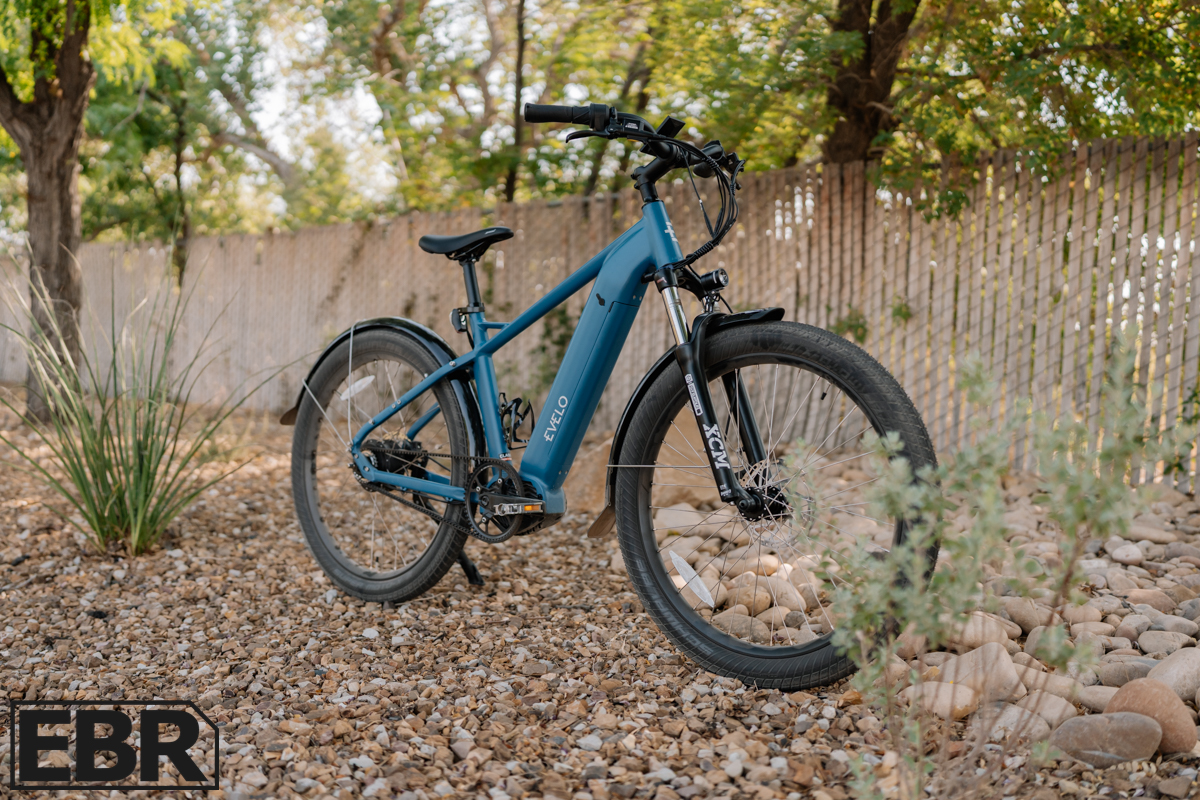
Let’s address the elephant in the room right off the bat: curb appeal is an all-or-nothing deal with the Atlas. You get one frame size that fits riders from 5’6″ to 6’3″, and one color, this blue with black accents you see in the photos. If you fall outside that fit range or hate blue, you’re out of luck. These are non-negotiables.
At 5’11”, I found the fit to be very good. More importantly, the frame geometry and Dutch-style handlebars create a nice upright, relaxed riding position that’s plenty comfortable for longer rides. The ergonomic platform grips, those wide 2.8″ Schwalbe tires, and the SR Suntour front fork all work together to deliver genuine comfort whether you’re cruising smooth pavement or navigating rough city streets.
The Bafang mid-drive motor has a nice low hum when accelerating, it’s quiet but not silent, just subtly present. The real highlight is the on-tap power and acceleration. It makes for fun, punchy rides and tackles hills with authority, which I’m always a fan of for a bike designed to handle the everyday hustle of commuting, errands, and weekend recreation. It has the gusto to tackle it all, and confidently.
I’m genuinely impressed by the drivetrain setup. The Gates Carbon belt runs silently and eliminates the threat of greasy pant legs. The twist-grip Enviolo CVT keeps me in the right gear no matter what I’m doing. Is there a learning curve? Sure, but once you get it, it’s a really sweet setup without the hassle or headache of a rear derailleur and all the drama that can come with one. Want to shift on the go as you’re heading uphill? Do it, no concerns about shifting under load here. Want to shift back to a better starting gear while waiting at a stoplight? Go for it. You can shift at 0 mph just as easily as at 28 mph. The usage is really flexible, and there’s no clunky gear changing, it’s just buttery smooth and intuitive.
The 27.5″ alloy wheels are surprisingly tubeless-compatible, which is a nice touch not often seen on commuter or cruiser style ebikes. They’re wrapped in Schwalbe Super Moto-X 27.5″ x 2.8″ tires with GreenGuard puncture protection that significantly reduces flat potential. The slick-ish tread pattern rolls smooth and quietly, and you can air down into the low 20s PSI for even more comfort if you want. Fair warning though: if you want to go tubeless, you’ll need different tires, these Moto-X aren’t tubeless-ready according to Schwalbe’s site. It would have been a sweet complete setup, but halfway there is better than not at all.
Practical daily creature comforts like full front-to-back fenders and LED lighting keep the bike ready for rainy days or downtown rides after dark, fitting perfectly with the bike’s commuter and touring theme. It’s the kind of thoughtful spec list that shows EVELO built this bike for people who actually ride regularly, not just for weekend warriors.
Range
Estimated Range (from Evelo): Up to 60 miles
Real World Range Test Results:
- Minimum Assistance (Eco Mode) Test: 48 miles
- Maximum Assistance (Boost Mode) Test: 34 miles
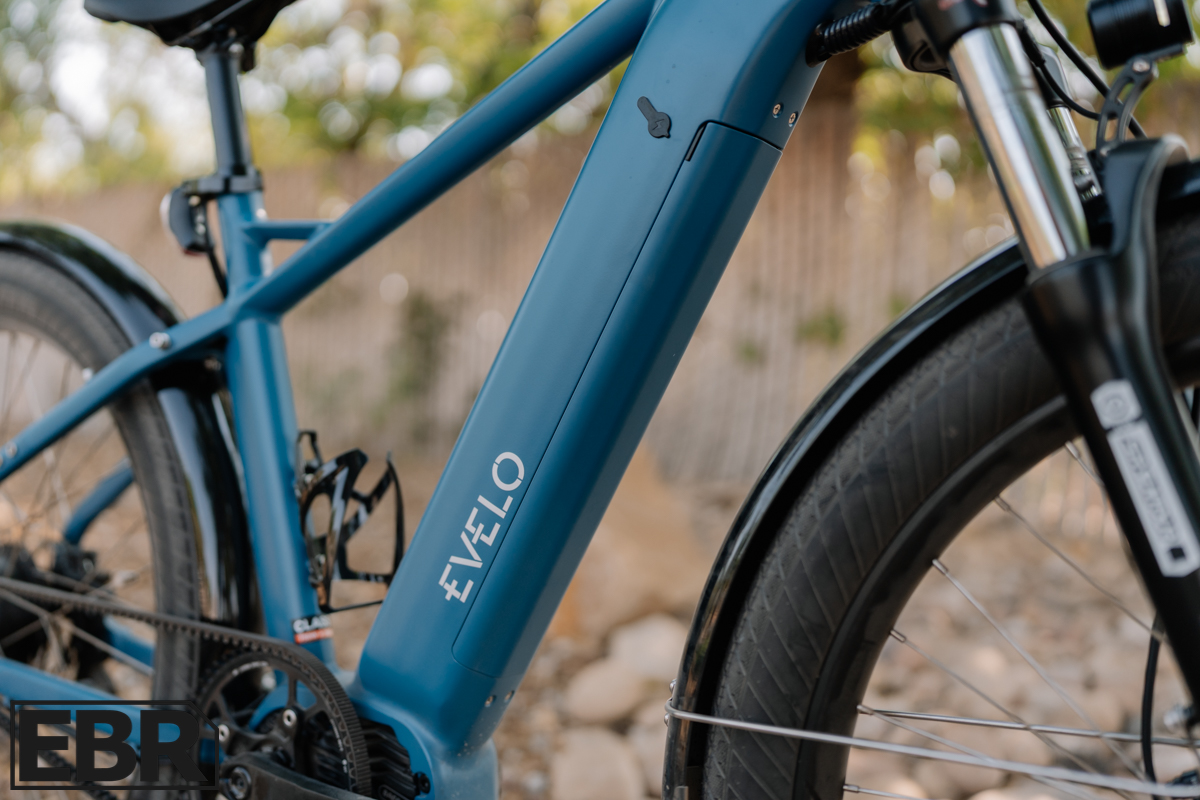
When it comes to range, EVELO quotes “up to 60 miles” for the Atlas, a number that, like most ebike range claims, deserves some scrutiny. I put the 720Wh battery through two unofficial range tests in both Eco mode (lowest assistance) and Boost mode (maximum assistance), with a full recharge between runs.
For context, I weigh about 180 pounds, and testing happened on a local city bike path that’s mostly flat with a few mild inclines. Minimal stops, occasional slowdowns for passing pedestrians, pretty ideal range testing conditions overall.
In Eco mode, the Atlas covered 48 miles before the battery died. That’s respectable, though it falls 12 miles short of EVELO’s claim. After a full recharge, I ran it again in Boost mode with maximum assistance. The Atlas managed 34 miles, which is actually impressive for full-blast assist on a 720Wh battery powering a 120Nm mid-drive motor.
So, what’s that mean for you? Based on my testing, you’re looking at 34-48 miles depending on assistance level, though of course, your mileage may vary. That’s solid real-world performance, though it does highlight the gap between marketing claims and reality. The “up to 60 miles” likely assumes a lighter rider, perfect conditions, and minimal assist usage. For most riders using the bike as intended, expect to land in that 34 to 48 mile window. A 15-20 mile round-trip commute means charging every couple days. Longer rides or tours will require charging stops or EVELO’s optional secondary 14.5Ah battery that mounts on the rear rack.
Power (Motor & Battery)
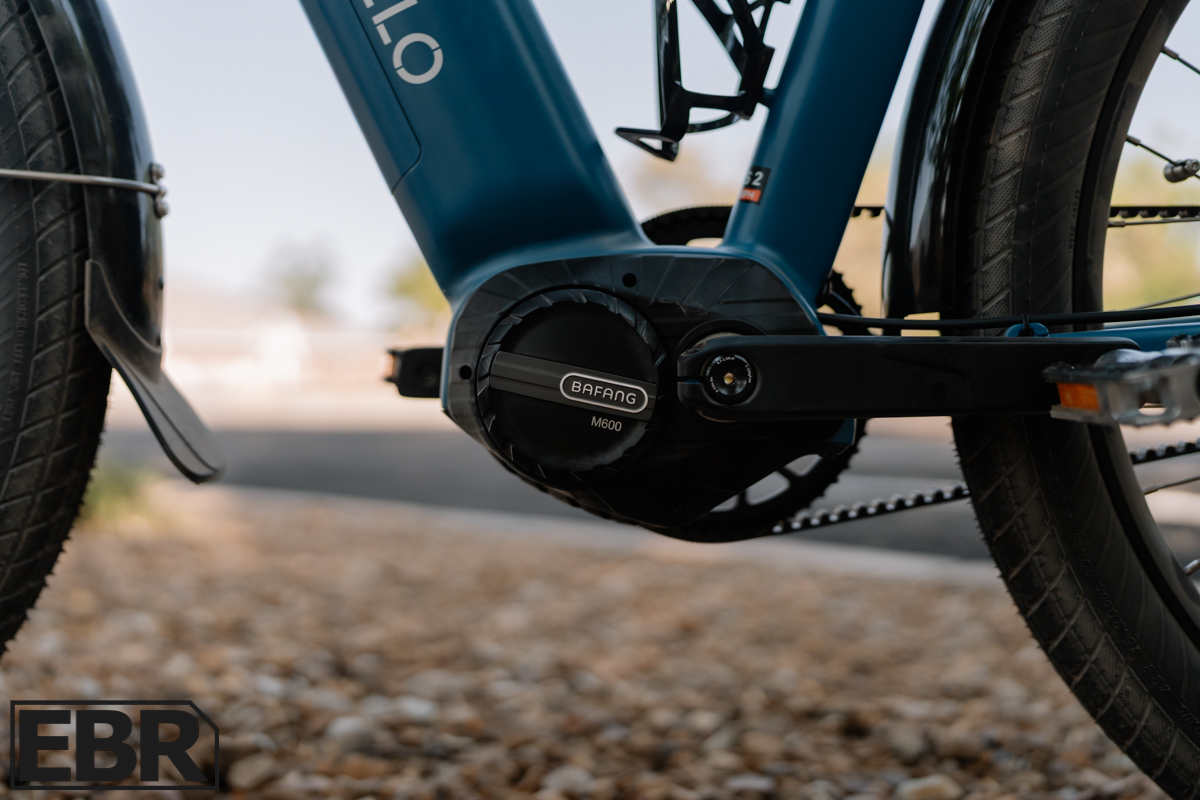
The Atlas runs a Bafang M600 mid-drive motor with 600W nominal output, 1200W peak, and 120Nm of torque. The motor is quiet but not silent, it’s subtly present rather than loud, just a gentle hum that lets you know it’s working without drowning out everything else. It operates via a torque sensor, which feels significantly better than the punchy, on-off nature of cadence sensors. The assistance ramps up smoothly based on your pedaling effort, creating a more realistic and natural riding feel.
You get either 3 or 5 levels of pedal assistance (switchable in the display menus), plus a thumb throttle on the left side of the handlebar. The throttle is limited to 20 mph, while pedal assist can carry you up to 28 mph, or you can limit it to 20 mph in the display if you want to stay Class 2 compliant in areas with restrictions.
The battery is a frame-integrated 720Wh unit (48V, 15Ah) that EVELO says meets UL 2271 safety standards. It’s removable via the included keyset for security, storage, or off-bike charging, which is a nice touch if you live in an apartment or want to bring it inside during winter. The included charger is a 3A fast charger that cuts charge time down to 4-5 hours versus the 6-8 hours you’d get with a standard 2A charger, a solid perk that makes mid-day top-ups more practical.
For those worried about range or dealing with longer commutes, EVELO sells a secondary battery that requires the Super Range System, a rear rack with an integrated battery cage that mounts to the bike. You need both the spare battery and the rack system to make it work, but the setup would theoretically double your existing range, putting you well into the 60-90+ mile territory depending on conditions and assist levels. It’s not cheap, but for touring or serious distance riding, it’s a smart option to have available.
Components
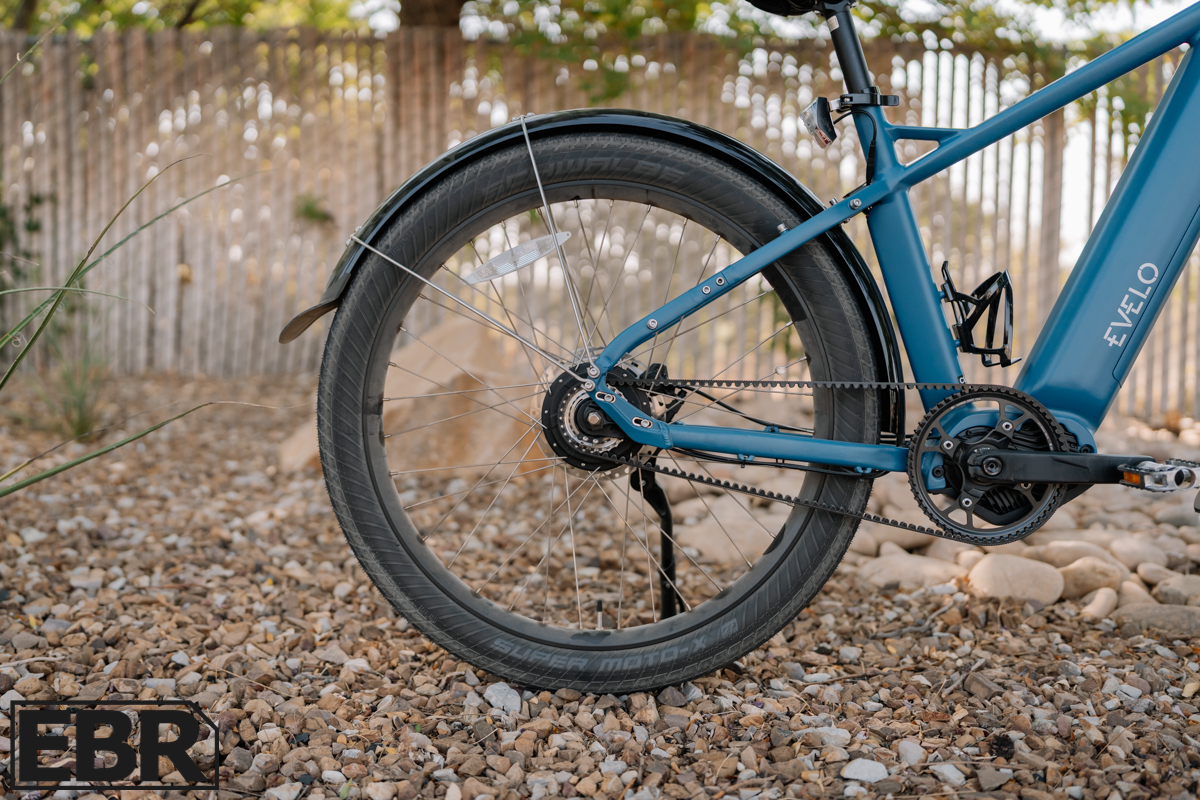
Let’s talk about traditional bike drivetrains for a second. If you’ve owned a bike, you know the drill: chains need lubing every few hundred miles, they collect grime, they slap grease onto your chainstays and pants, they stretch and require tension adjustments, and derailleurs need periodic tweaking to keep shifting crisp, and lets not even get into laying down or dropping your bike and bending that derailleur hanger. None of this is complicated, but it’s ongoing maintenance that adds up. For a lot of riders, especially those buying a premium commuter, the appeal isn’t wrenching on their bike every few weeks. They just want to ride without thinking about it.
That’s where the local bike shop becomes your regular hangout, not because something broke, but because chains need replacing, cables have stretched, or your derailleur hanger got slightly bent and now your shifting is garbage. It’s routine care, sure, but it’s still time and money spent babysitting a mechanical drivetrain that just needs attention. For a $4,000+ bike you’re planning to ride daily, that can get old fast.
The Atlas sidesteps most of this with a Gates Carbon belt drive and Enviolo CVT hub. The belt requires zero lubrication, doesn’t rust, and runs whisper-quiet with no greasy chain slap on the chainstays. You can lean the bike against anything without worrying about grease transfers, and after a rainy commute, there’s no gritty chain to deal with. Gates rates these belts for 15,000 to 20,000+ miles of maintenance-free operation, which lines up nicely with EVELO’s 4-year/20,000-mile warranty. The Enviolo CVT eliminates derailleur adjustments entirely, no cables to stretch, no limit screws to tweak, no hanger alignment to worry about. You twist the grip, it shifts. That’s it. Plus, you shift while stopped, or while on the go, there’s no ‘taxing’ the system like a traditional derailleur and the faux pas of ‘shifting underload’ doesn’t apply here either, it’s very user friendly. Power goes through a 55T chainring and 170mm alloy cranks with Wellgo platform pedals.
The wheels are 27.5″ with extra-wide rims, 13G spokes, and tubeless compatibility, a cool feature not always seen on lifestyle ebikes. If the thought of changing a tube on the side of a bike path isn’t your idea of a great day, you could convert these to tubeless with sealant and carry tire plugs (bacon strips) for essentially a no-tool flat fix. That said, the stock Schwalbe Moto-X 27.5″ x 2.8″ tires aren’t tubeless-ready, but they do come with Schwalbe’s GreenGuard flat protection, a 3mm layer of highly elastic rubber on a 67 EPI carcass that creates a tougher physical barrier against punctures. They’re also e-bike specific rated for the higher torque, weight, and tougher use that comes with ebikes.
Brakes are Tektro Auriga 2-piston hydraulics with 180mm rotors front and rear. The Auriga is a step up from the HD-350’s we more typically see on most e-bikes and a huge leap in performance when compared to the Zoom brakes used on the previous years of the Atlas, but after enough feedback from owners EVELO stepped up tho these more premium Tektros. While both sets have e-motor cutoff sensors when braking, the difference shows up in modulation and consistency where predictable stopping power on a 66-pound bike that hits 28 mph is a welcomed upgrade.
The Selle Royal Freccia saddle is fine, which is about as good as stock saddles get, and I hate giving my opinion on how saddles feel because it’s so subjective to each individual, I don’t need to muddy the waters. The 31.8mm aluminum seatpost makes swaps easy if you want to upgrade and easier to adjust with the quick-release seat post lever.
Up front, the 610mm (24-inch) handlebar feels a bit narrow for taller riders. At the upper end of the 5’6″ to 6’3″ fit range, handling gets slightly twitchy. A wider bar around 680mm would provide better leverage and stability. It’s an easy upgrade if it bothers you. The ergonomic rubber grips do their job, and the cockpit layout is clean with the Enviolo twist shifter on the right, well-positioned brake levers, and room for accessories.
The SR Suntour XCM fork handles basic suspension duties, it takes the edge off potholes and broken pavement for urban riding and light trails. It complements the wide tires to create a reasonably comfortable ride over rough surfaces.
Fenders come standard (our test unit had metal fenders despite EVELO’s website listing composite), there are mounting points for a rear rack and water bottle cage, and EVELO includes a branded water bottle. Front and rear LED lights are also included. The overall component package is built around long-term reliability and low maintenance rather than flashy specs, exactly the right priority list for riders who want a bike that just works.
Screen / User Interface / App
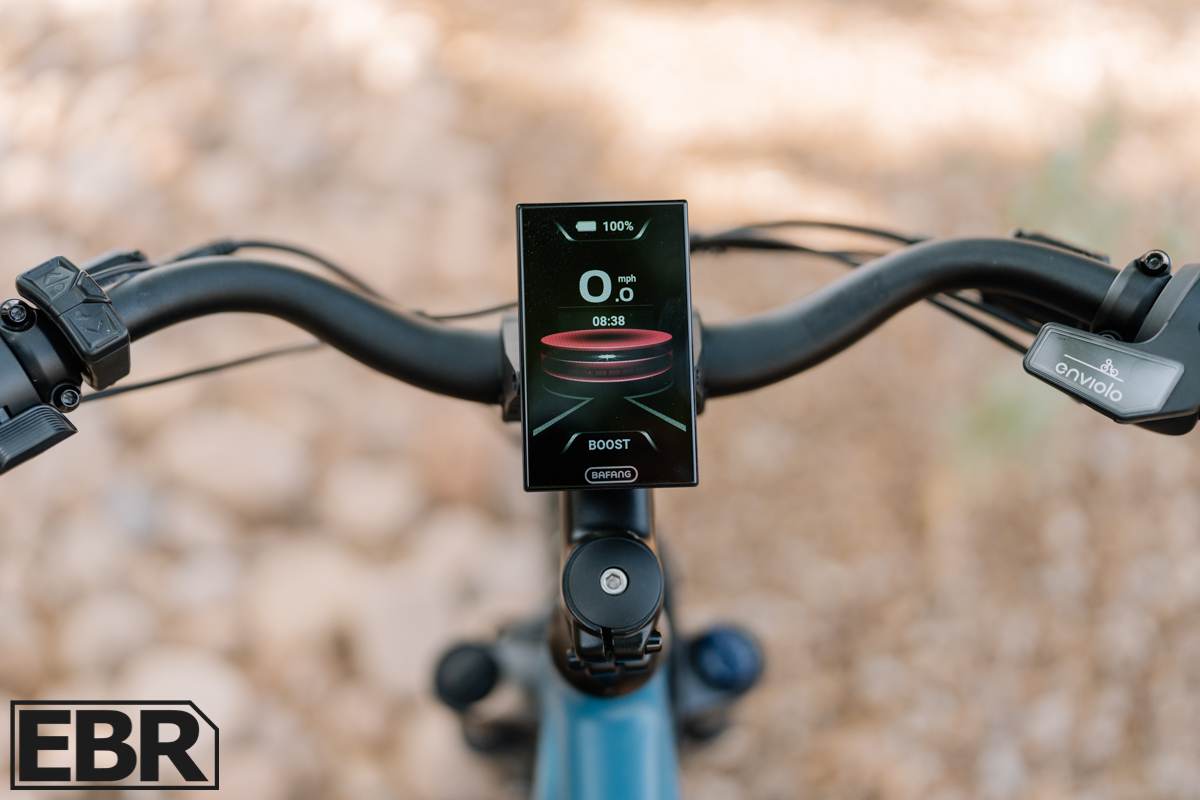
The Atlas comes with the Bafang C-010 full-color 4.7″ display, and it’s genuinely nice to use. The colors are nicely contrasted and the screen remains readable even in direct sunlight, which is more than you can say for a lot of ebike displays that wash out the second the sun hits them.
There’s technically a Bafang app, but I tried it with this bike and it was essentially useless, so let’s just say there is no app. Honestly, that’s not a bad thing. The display itself has enough built-in functionality that you don’t need to pull out your phone every time you want to adjust something. Hold the plus and minus buttons for 3-5 seconds and you’re into the settings menu, where you can tweak everything from display profile themes (Fashion, Sports, or Technology) that alter the color palette and layout while keeping all the same info visible, time, PAS level, battery level, speed, and so on.
The advanced menus let you switch units, control speed limits, and pull up all the hardware/firmware and serial numbers for the important components should you need them for support or service. It’s an easy-to-use display with plenty to tinker with, and I’d take that all day over another app cluttering up my phone just to ride my bike.
Evelo Atlas Model Options
EVELO keeps things straightforward with the Atlas, one size frame that fits riders from 5’6″ to 6’3″, and one color option in blue with black accents. That’s it. No decision paralysis here.
The bike comes with a solid set of included accessories: front and rear fenders (mine were metal despite the website saying composite, so who knows what you’ll actually get), front and rear lighting, a bottle cage with an EVELO water bottle, and a bell. It’s a nice ready-to-ride package out of the box.
If you want more, EVELO has you covered with add-ons like the secondary battery and Super Range System rear rack, an XXL Selle Royal Freccia Cruiser saddle upgrade, a Cane Creek Thudbuster suspension seatpost, rack bags, and plenty of other creature comforts and gear to customize the Atlas to your needs.
Is The Evelo Atlas Worth Buying?
The EVELO Atlas is a bike that makes sense for a specific type of rider, someone who values long-term reliability and low maintenance over flashy specs or the lowest possible price. The Gates belt drive and Enviolo CVT combo alone justify a significant chunk of the $4,149 asking price if you’re the type who just wants to ride without constantly babysitting your drivetrain. Add in quality hydraulic brakes, a powerful and smooth mid-drive motor, and a legitimate 4-year/20,000-mile warranty, and you’ve got a package that’s genuinely built for the long haul.
There are compromises, of course. The single frame size and lone color option limit your choices, and taller riders might find the narrow handlebars less than ideal without swapping them out. The range falls short of EVELO’s claims, though the 34-48 miles you’ll actually get is still solid for most commuting and recreational use.
But step back and look at what the Atlas is really offering: a bike designed to be boring in the best possible way. It’s not chasing trends or trying to be the lightest, fastest, or cheapest option. It’s built to show up, day after day, ride after ride, without complaint. For riders who clock serious miles and don’t want to think about maintenance schedules or drivetrain adjustments, the Atlas delivers exactly what it promises. And in a market flooded with disposable ebikes where some barely make it past their warranty periods, that’s worth paying attention to.
Pros
- Gates Carbon Belt Drive eliminates chain maintenance, grease, and noise for a cleaner, quieter ride.
- Enviolo CVT delivers smooth shifting whether you’re stopped or on the go, all with the twist of a wrist and no finicky rear derailleur drama.
- Bafang mid-drive motor peaks at 1200W and pushes 120Nm of torque, making this a very capable bike for everything from mundane commutes to weekend adventures off the beaten path.
- Premium Schwalbe Super Moto-X tires with GreenGuard puncture protection paired with tubeless-compatible 27.5″ wheels give you options and peace of mind.
- The best warranty we’ve seen at 4-year/20,000 miles, plus a 21-day trial period so you can actually test it before committing.
- Upgraded Tektro Auriga hydraulic disc brakes deliver excellent modulation and stopping power when you need it most.
Cons
- The handlebar is a bit too narrow for my liking, a wider 680mm bar would serve handling and reach better, especially for taller riders.
- Only one color (blue) and one frame size potentially leaves many riders out if they don’t fit in that narrow box.

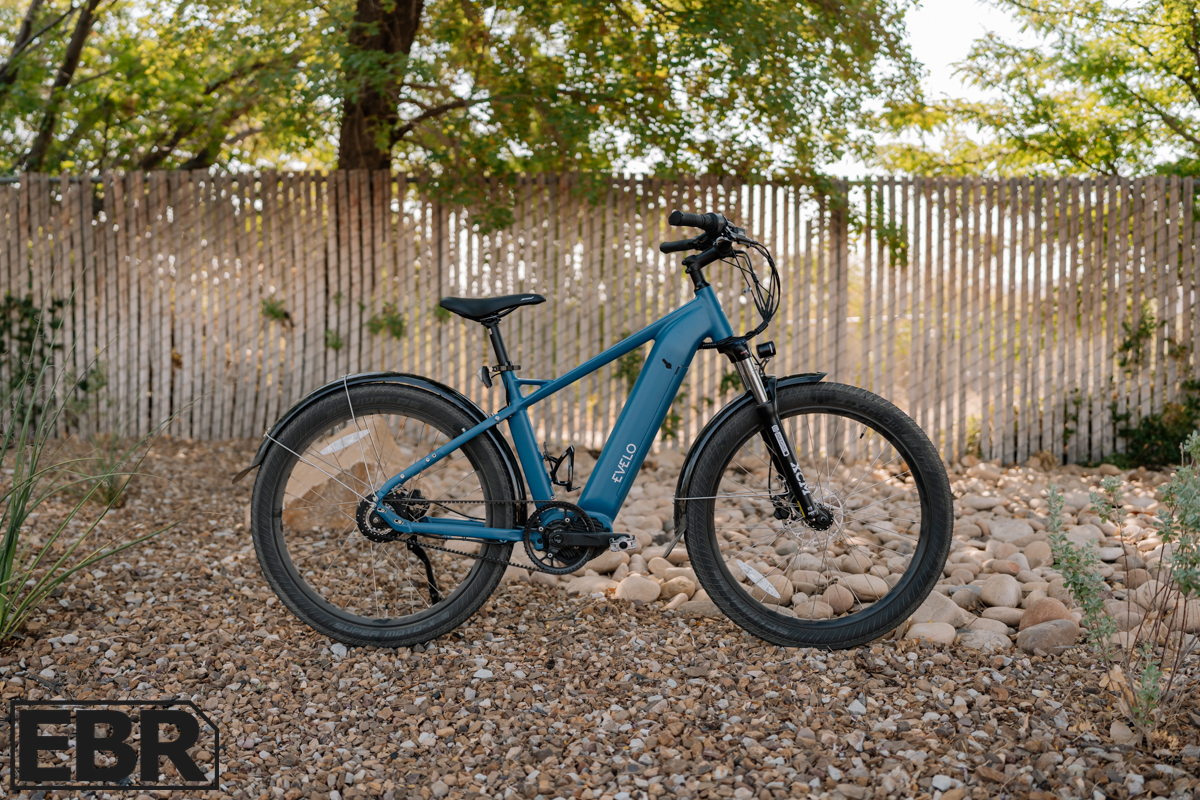
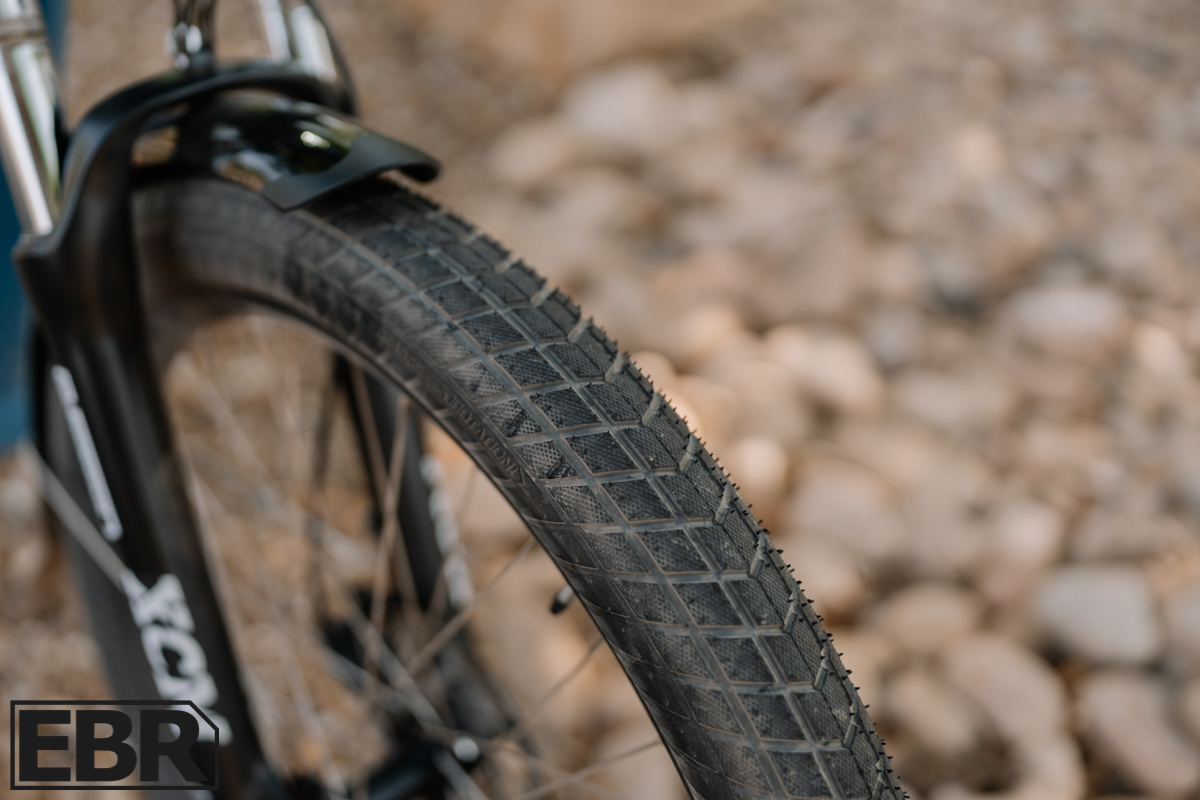
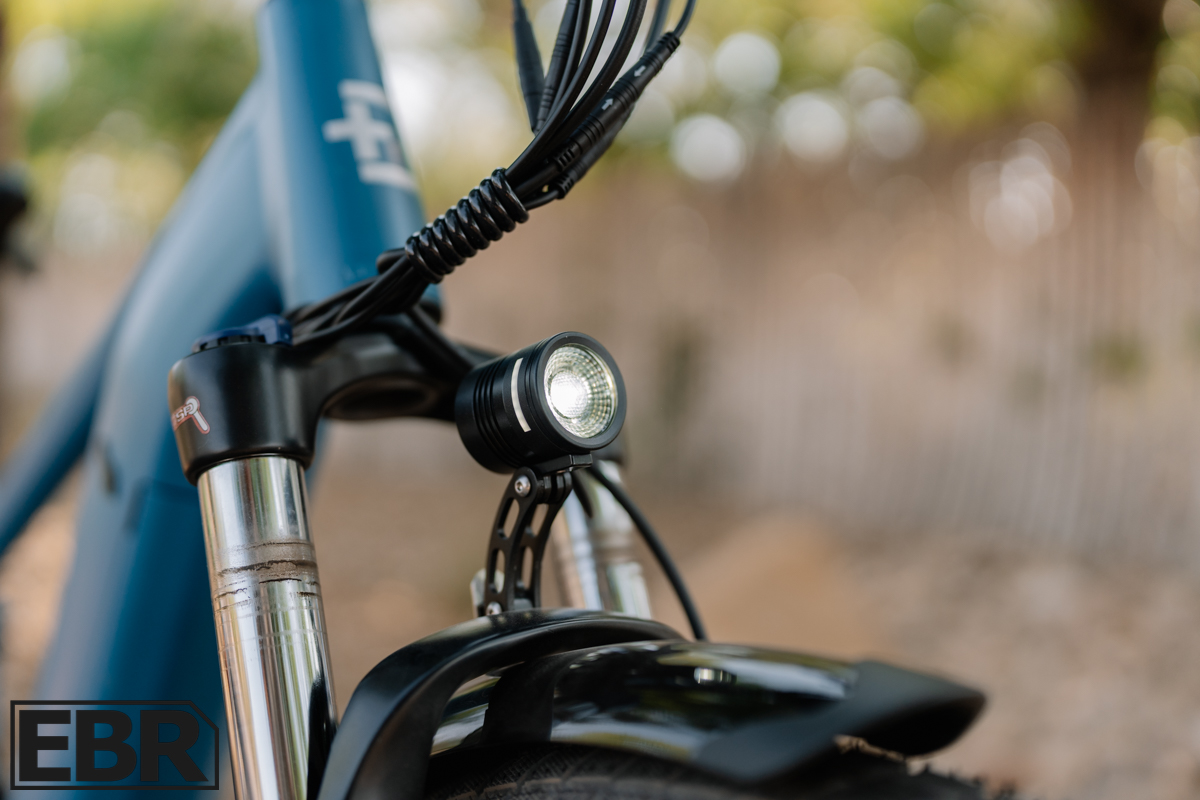
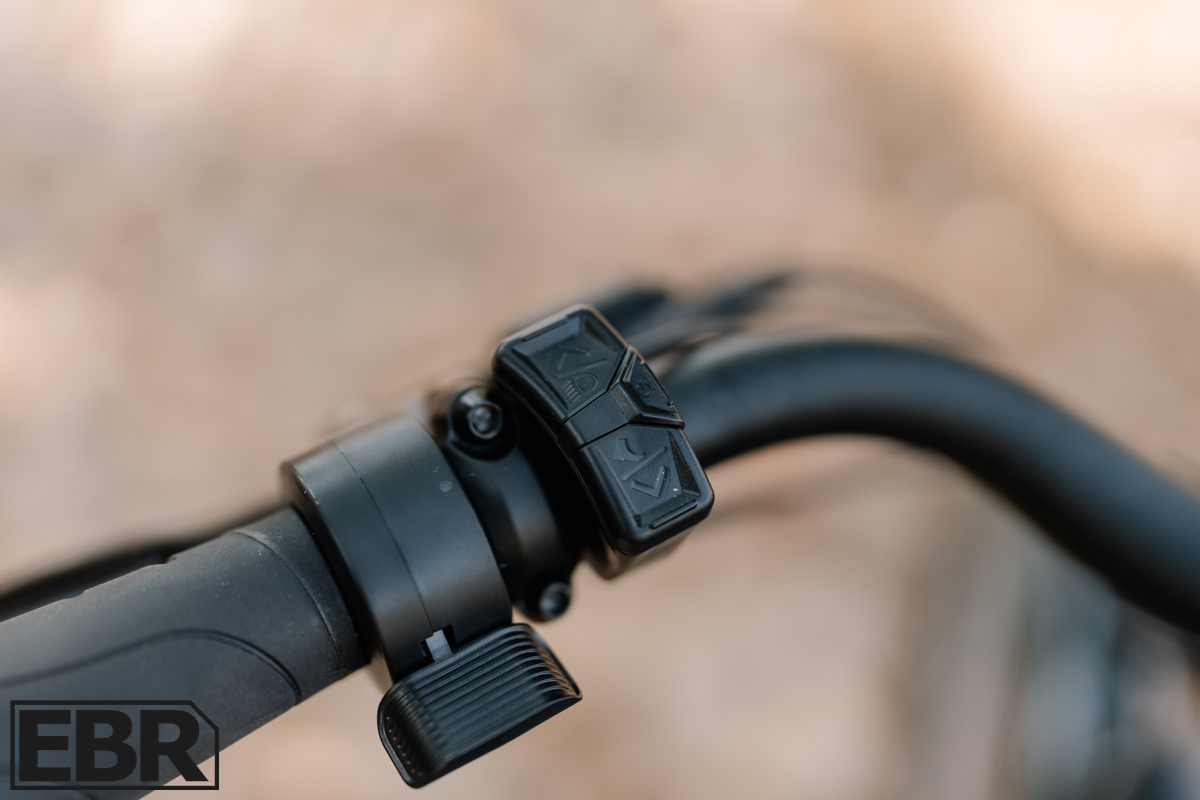
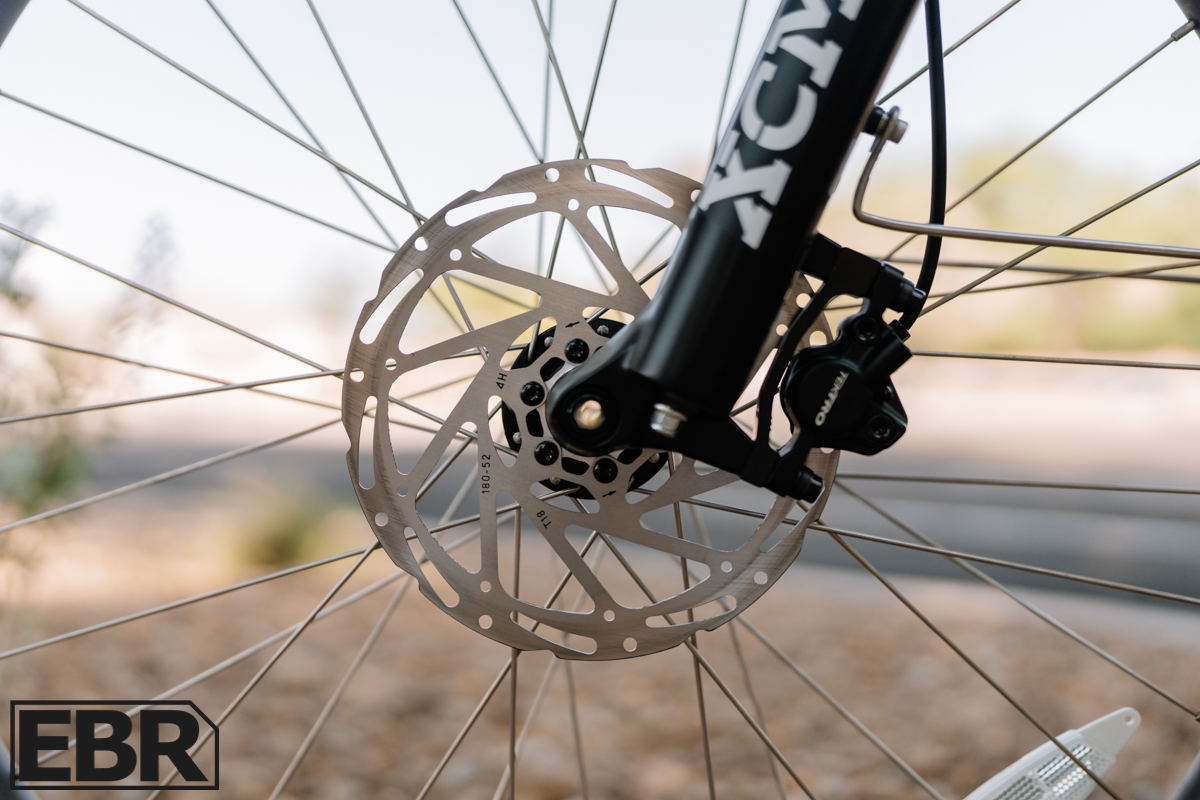



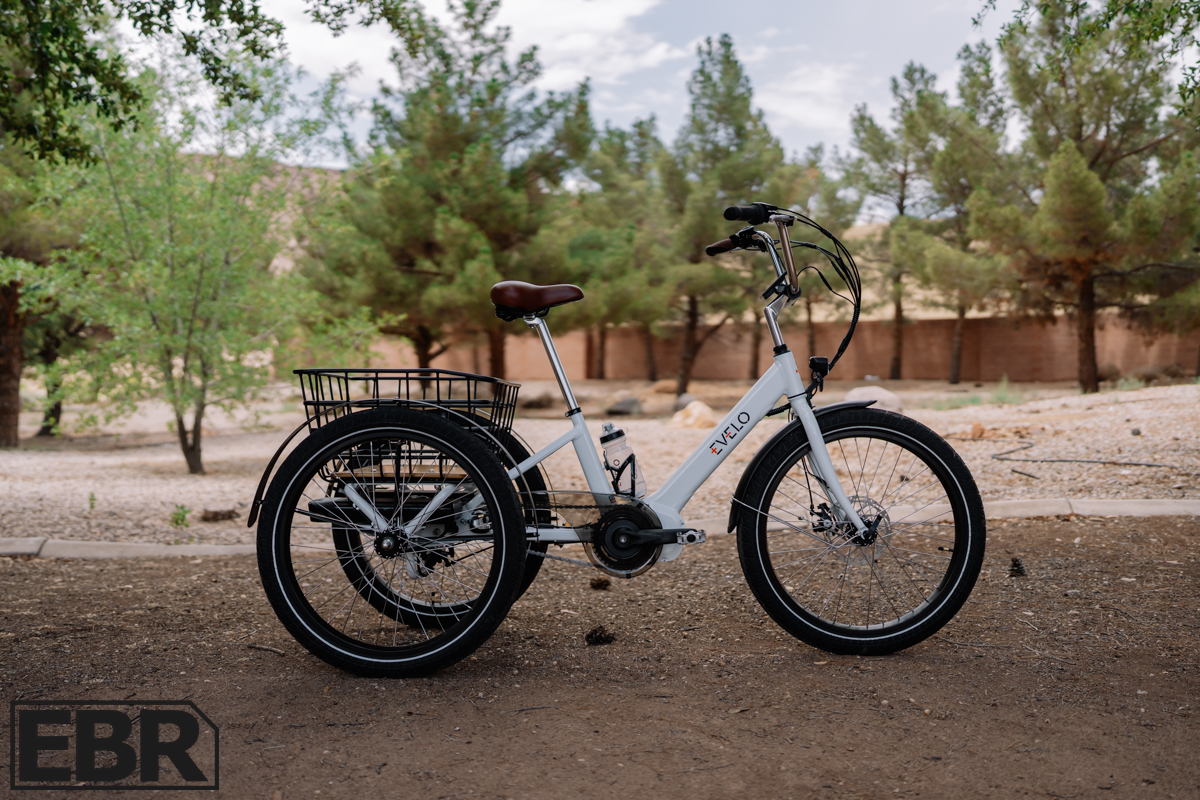
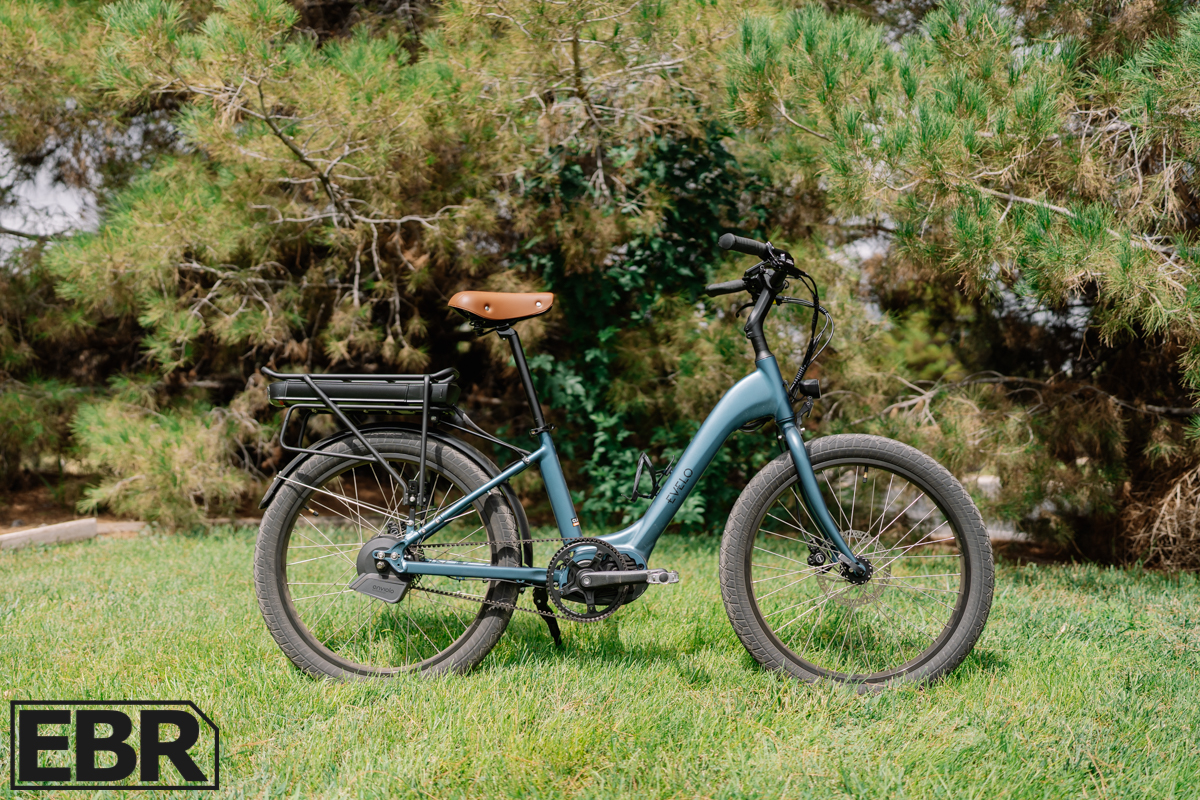
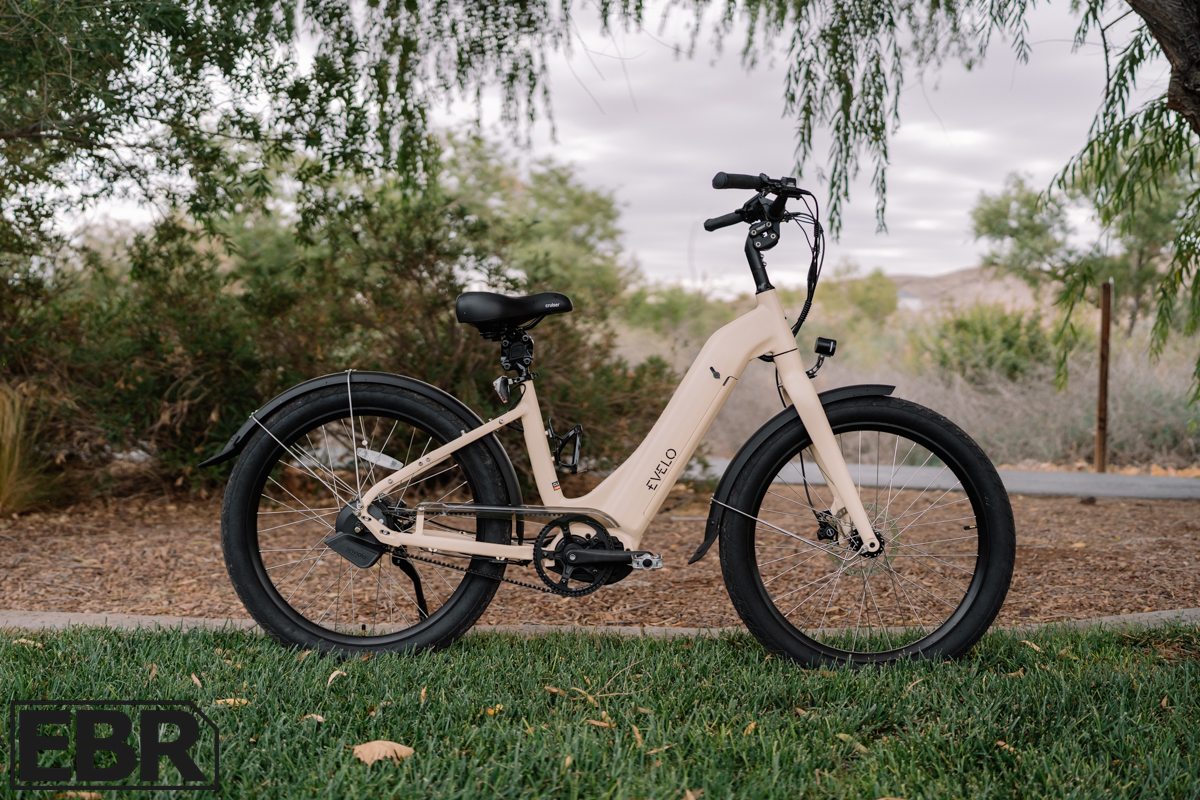
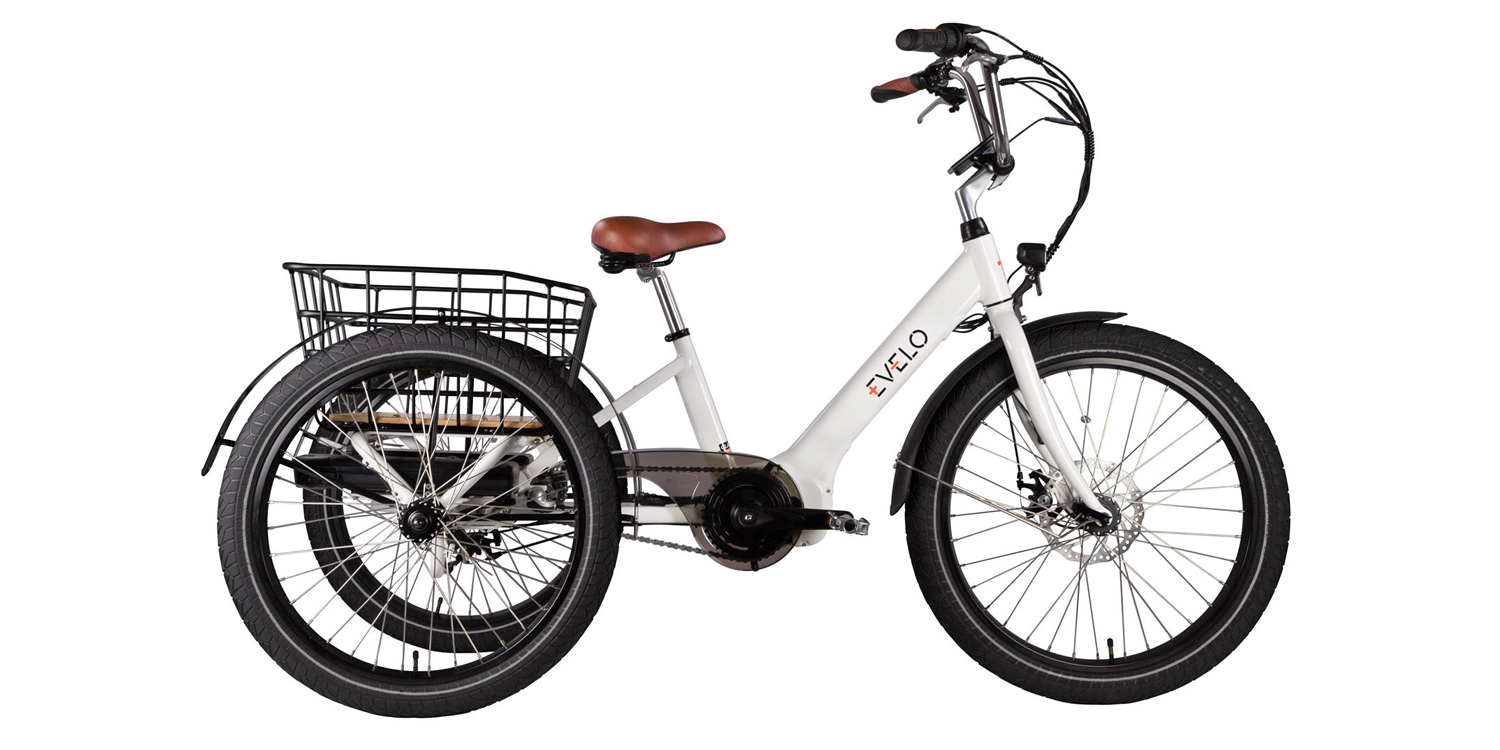
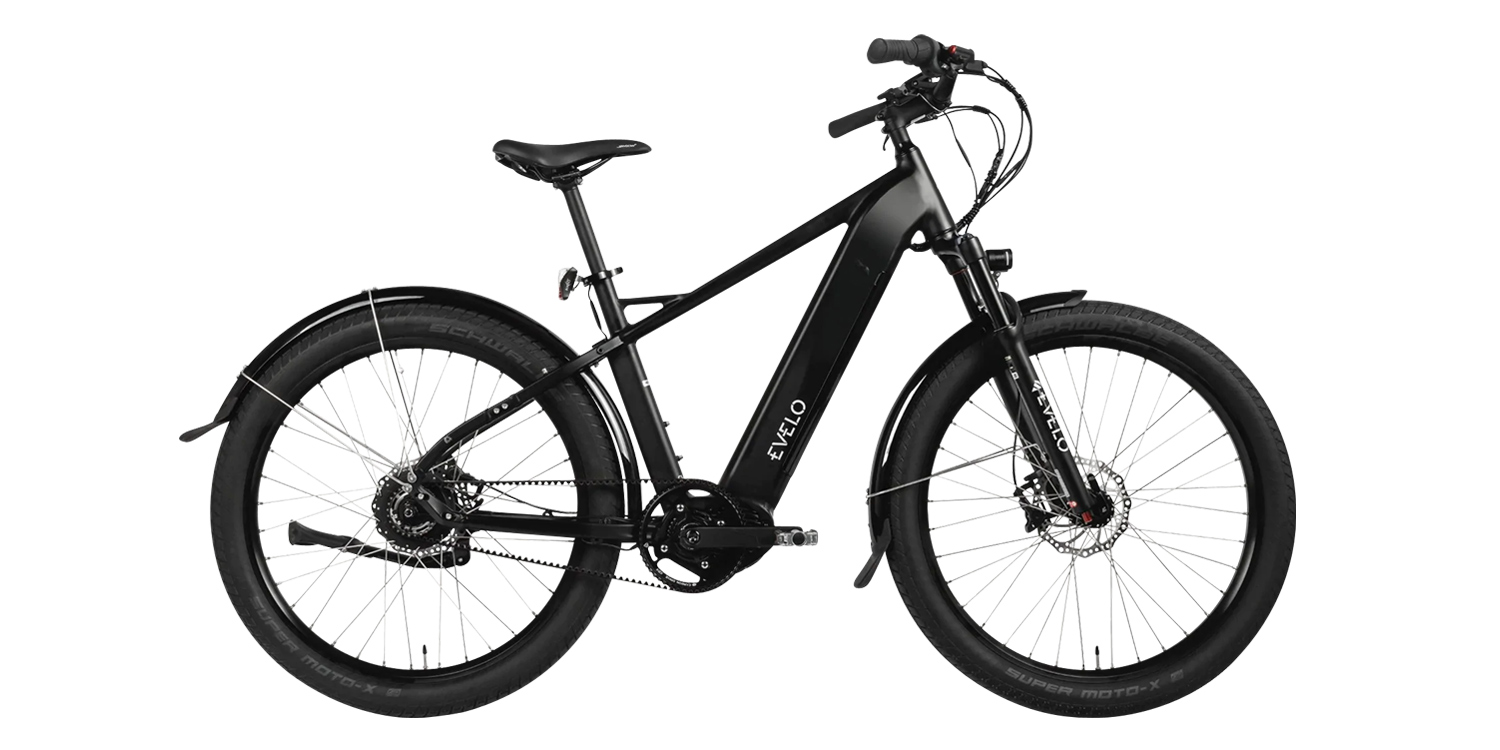
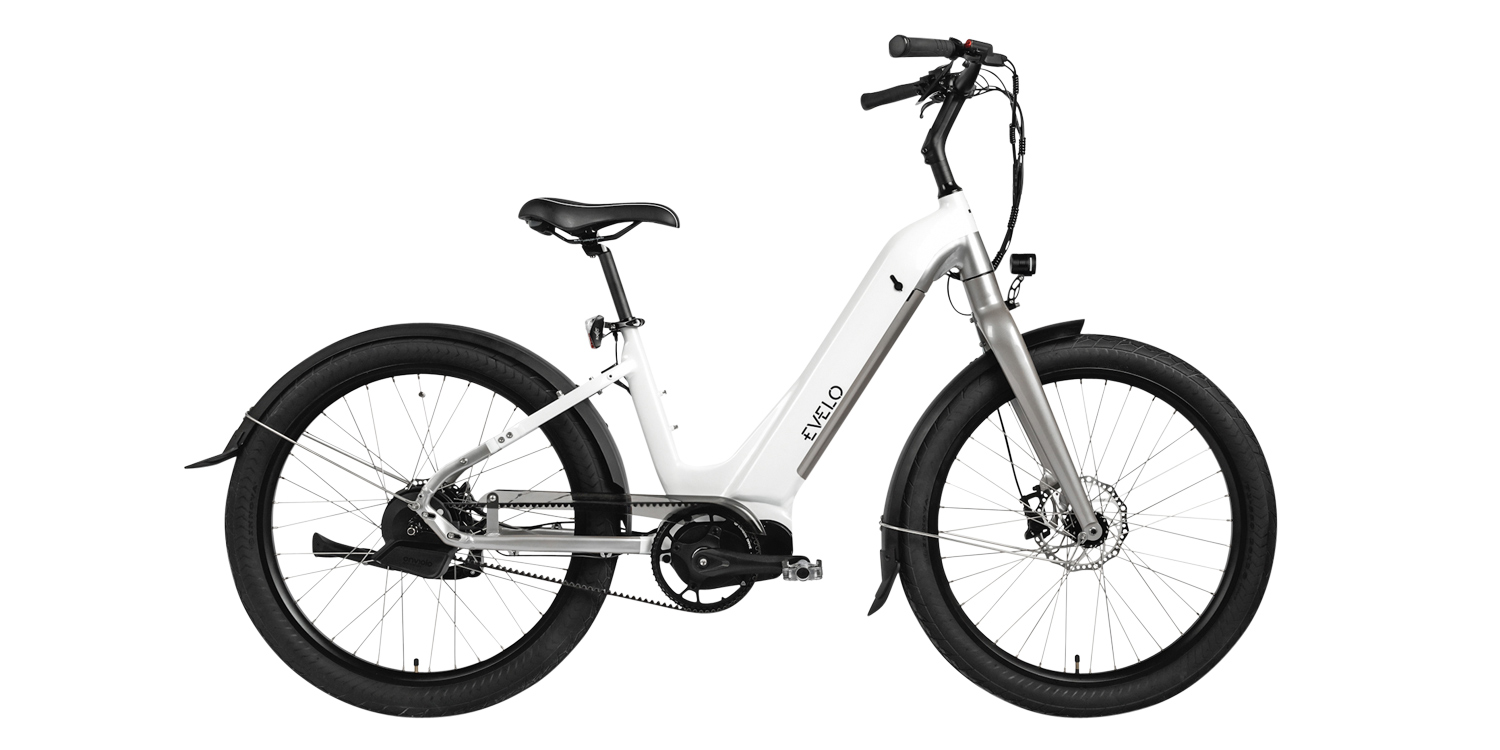
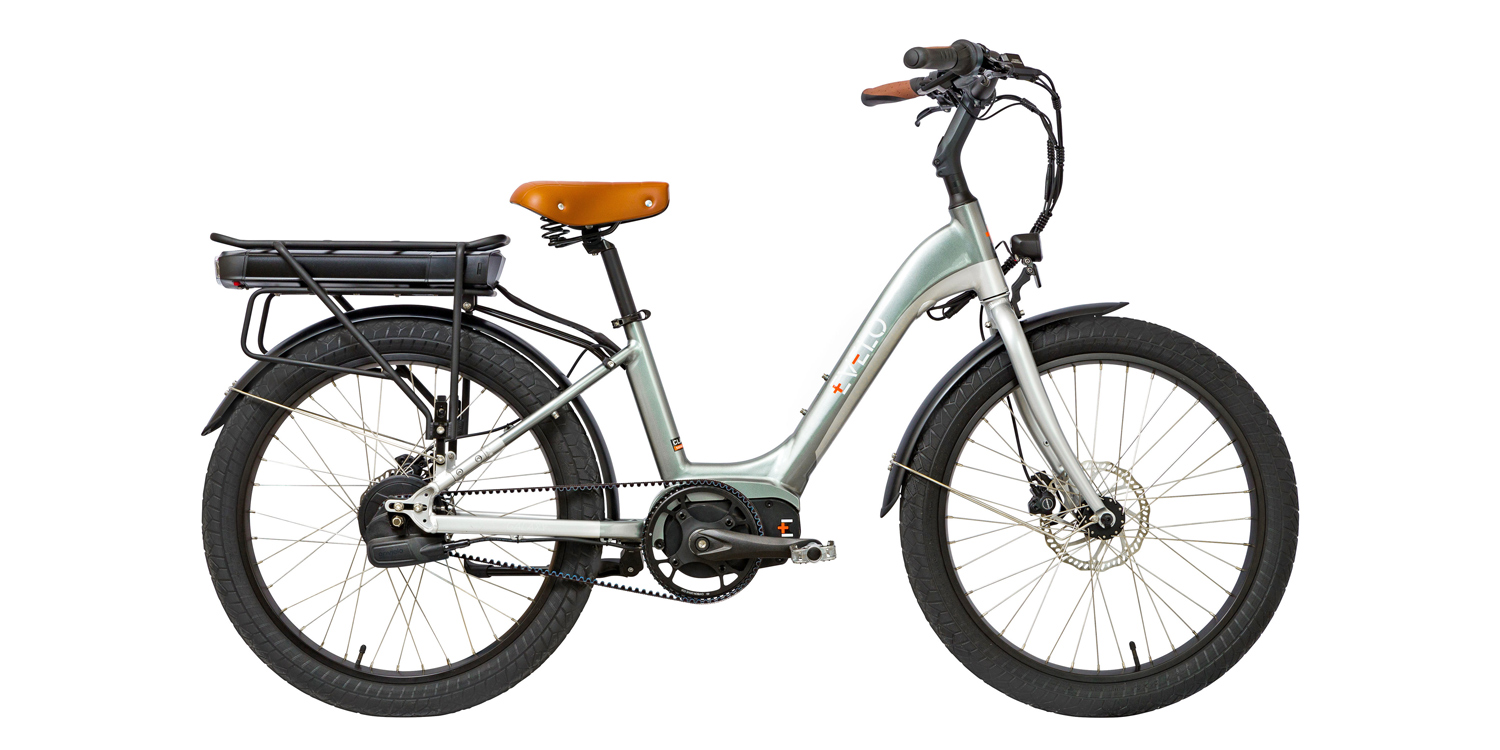
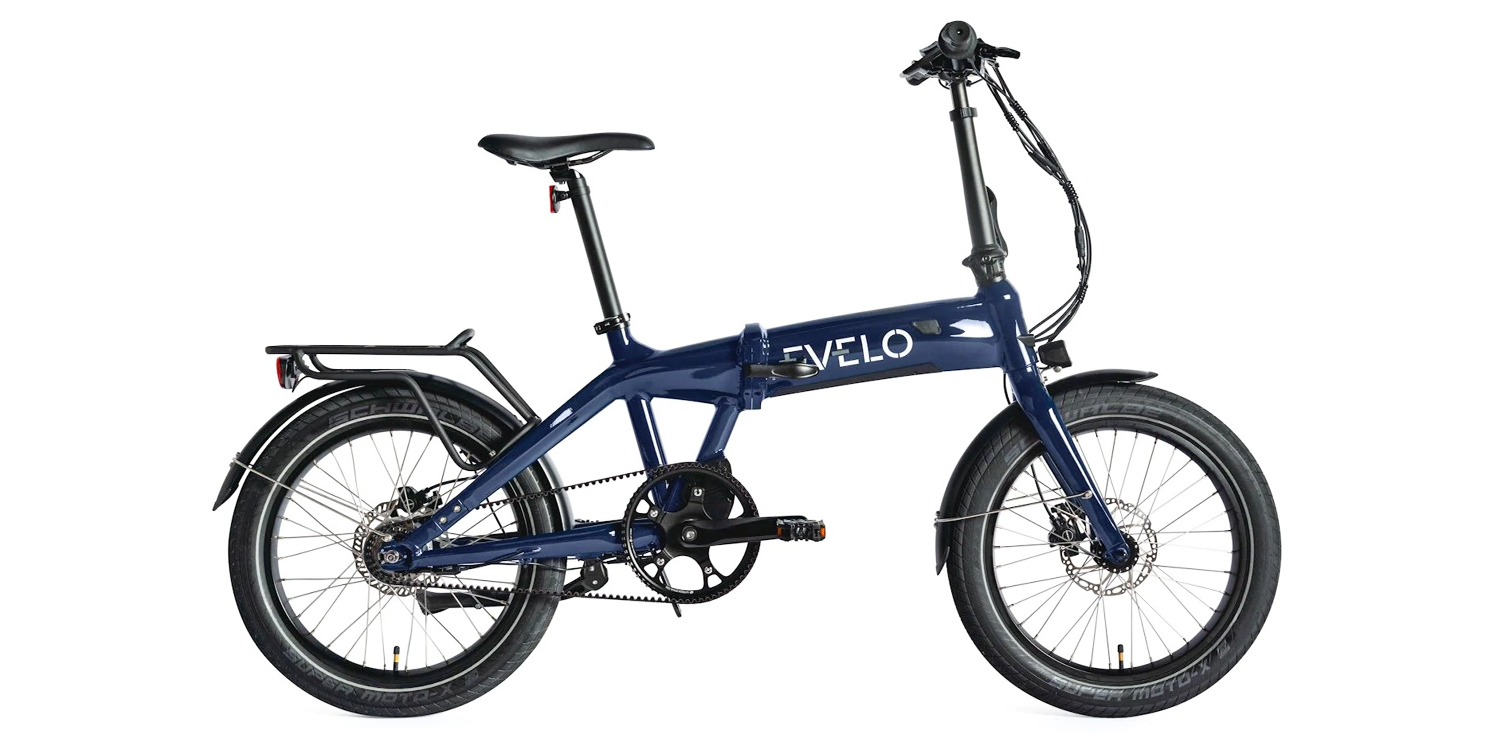
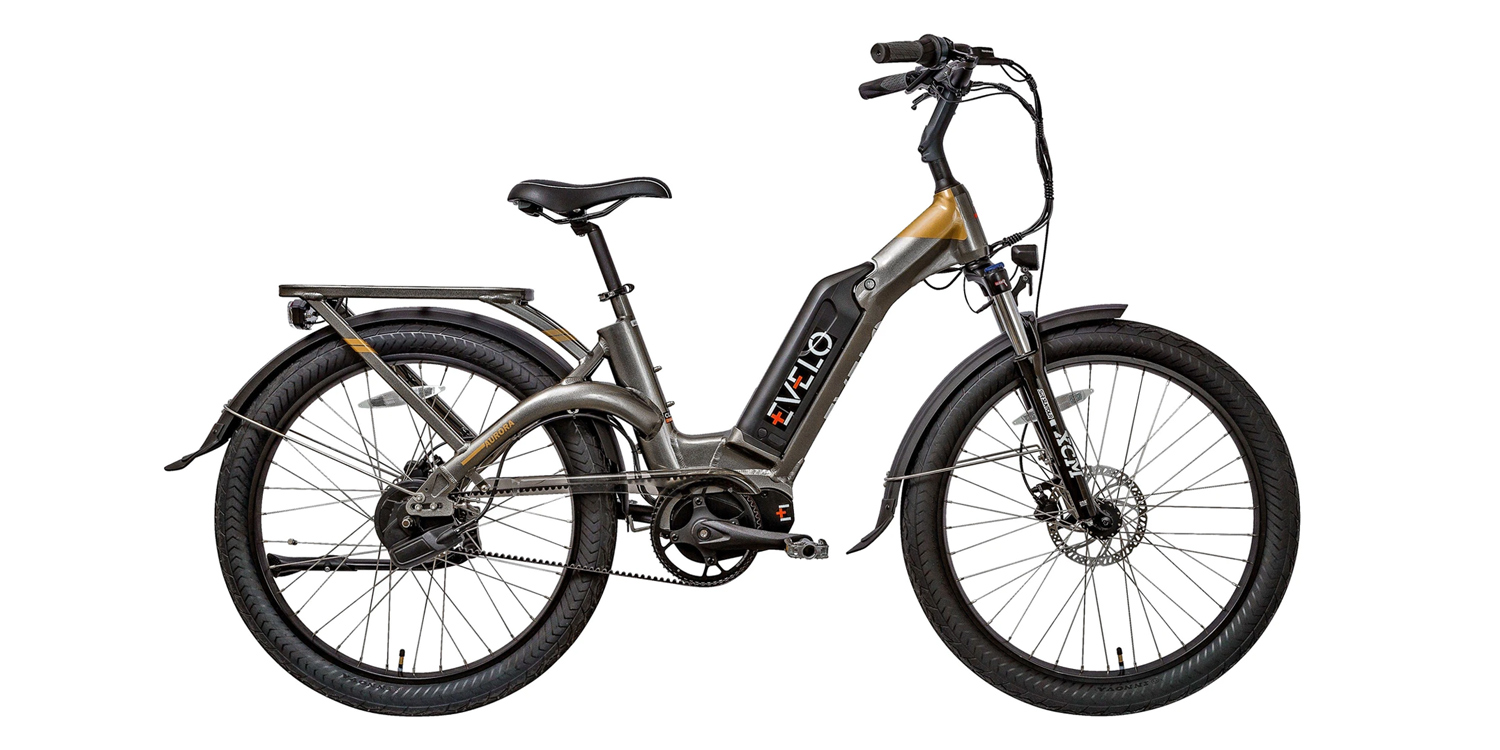

Reader Interactions